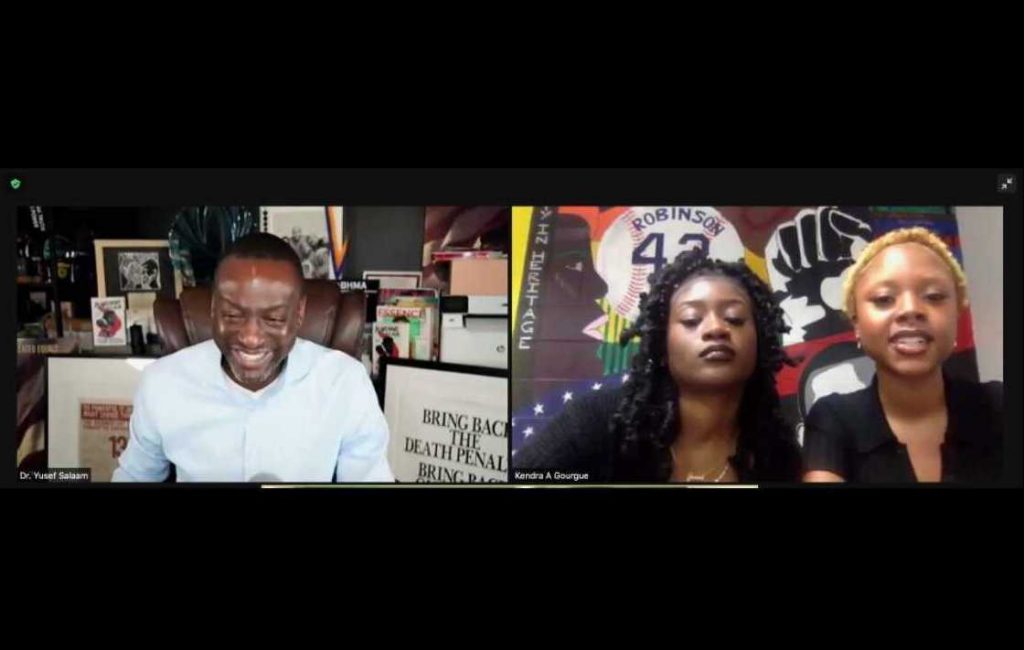Dr. Yusef Salaam, a member of the exonerated Central Park Five and an advocate for people who have suffered from false confessions and police brutality, spoke at Binghamton University in honor of Black History Month via Zoom on Thursday.
The Central Park Five were a group of 14- to 16-year-old Black and Latino teenagers who were convicted of attacking and raping Trisha Meili, a white female jogger, in Central Park in 1989. The case made national news, and the young men were demonized throughout many New York publications, with much of the vitriol stemming from the fact that they were young men of color, and Meili was a white woman. They were coerced into confessing to the crime by police. Years later, DNA proved their innocence, and they were exonerated.
The group sued New York City for discrimination and emotional distress, which the city settled for $41 million. The group spent sentences ranging from 5–15 years in prison, with Salaam serving six years and eight months. Their story has been told in multiple documentaries and shows, including Ken Burns’ documentary “The Central Park Five” and Ava DuVernay’s Emmy award-winning limited series “When They See Us.” Salaam’s advocacy and educational work has led him to receive the President’s Lifetime Achievement Award from former President Barack Obama and become a board member of the Innocence Project, a nonprofit organization aimed at exonerating individuals who claim they were wrongly convicted.
The event, co-hosted by the Black Student Union (BSU) and the Student Association (SA) Programming Board, was originally planned for the spring semester of 2020. However, due to the COVID-19 pandemic, the event was canceled and rescheduled for one year later.
Sophia Cavalluzzi, SA vice president for programming and a senior majoring in English, said that despite the postponement, she was excited to attend and co-host the lecture this year.
“This was one of our most highly anticipated shows, and people were very excited to attend,” Cavalluzzi wrote in an email. “I feel very lucky that such a great show was planned by my predecessor and that we are able to host it now! We are also super grateful that we got to partner with the [BSU] and have them moderate the show.”
Salaam is an avid supporter of civil rights education. He believes education and conversations about Black history and racial inequality should be a year-round conversation for future generations.
“We can’t just be relegated to the shortest month in the year where we do deep dives in Black history,” Salaam said. “All throughout the year, we should be talking about the great inventions, we should be talking about the excellence of who came here. Because, as Dr. John Henrik Clarke said, ‘If you begin peoples’ history with slavery, everything else looks like progress.’ You did not bring slaves to America, you brought people who would be able to think to America. You brought people who would be able to invent to America. You brought kings and queens and princes and princesses to America. You brought warriors to America.”
Kendra Gourgue, vice president of BSU and a junior majoring in English, helped moderate the event by introducing Salaam and asking questions throughout the evening. Gourgue also helped create dialogues by responding to Salaam’s answers to questions on Black life and history in America.
“Us planting the seeds for the future is something that we can argue our people have been doing for forever, educating each other,” Gourgue said. “I think we’ve always had an oral history, and now it’s about acclimating further, taking those extra steps, planting more trees. And I think it’s beautiful to sit in that sometimes, knowing that we are a product of the work and the love and the tradition that’s been carried on throughout us and only us, time and after time again.”
Tim Markbreiter, a junior majoring in political science, attended the event and enjoyed the questions that BSU asked Salaam as well as his answers on current events affecting the Black community in America, such as last year’s Black Lives Matter protests.
“[Salaam] was answering a question about the Black Lives Matter movement, and specifically the protests this summer, and he cited Newton’s third law of motion which states that every action has an equal opposite reaction,” Markbreiter wrote. “I thought this [was] a really great way to put into perspective the anger and frustration that’s felt among Black Americans in this country regarding systematic oppression.”



